Hand and Upper Extremity Fellowship
The OrthoCarolina hand and upper extremity fellowship covers all elements of upper extremity pathology from "bread and butter" to complex conditions. We provide sole hand call coverage for all of the greater Charlotte area, central North Carolina as well as sections of northern South Carolina including Atrium Health - Carolinas Medical Center Level 1 trauma center. We perform surgery on the full spectrum of society from newborn to elderly, professional athletes to weekend warriors, and from the brachial plexus to the fingertips. We routinely do arthroscopy of the hand, wrist, shoulder and elbow as well as arthroplasty of the wrist, DRUJ, and small joints of the digits. The volume of the program is far beyond what three fellows are capable of covering as we average over 50,000 patient visits and over 6,000 surgeries per year at the OrthoCarolina Hand Center.
At OrthoCarolina we believe that not all
fellows should be trained identically. Fellows arrive with different
backgrounds (ortho, plastics, or general surgery) and have different
strengths and weaknesses within given fields. Because of this, we
tailor each fellows’ year to their individual needs and goals. The four
months of elective time truly allows this to occur in the final third
of the academic year. If a fellow desires more exposure to congenital,
shoulder surgery, or brachial plexus for instance, either due to a
feeling of deficiency or the demands of their future job, they have the
flexibility to focus additional time on those areas of upper extremity
reconstruction.
Lastly, the experience here is made more special by the experiences outside of work. Fellows and staff enjoy time together socially including sporting events (Panthers games, Hornet’s games, Knights games, NASCAR), trips to Dr. Gaston’s farm, Dr. Gaul’s mountain house, and golfing at area Country Clubs.
OrthoCarolina values diversity in the community and on our team. All are welcome here.
Our Hand team is committed to this mission in our service to an ever-growing multiethnic, multilingual, and multi-identifying Charlotte region. We strive to reflect our community as evidenced by our attending staff, fellows, PAs, therapists, and nursing staff. Most importantly, we are committed to culturally competent care that understands how patients' unique experiences and backgrounds are a critical part of wellness and recovery.
Our team highly endorses the American Association for Hand Surgery’s diversity and inclusion statement.
CLASS OF 2026
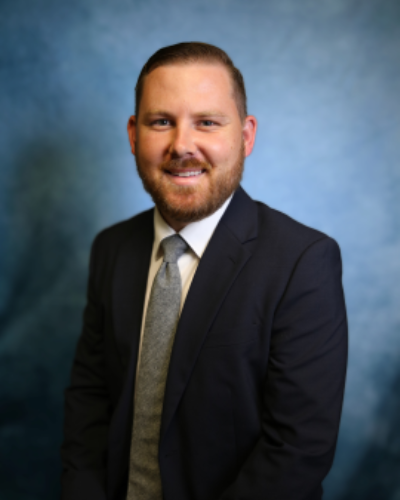
Seth Ahlquist, MD
Residency - UCLA
Medical School - UCLA
Undergrad - UCLA
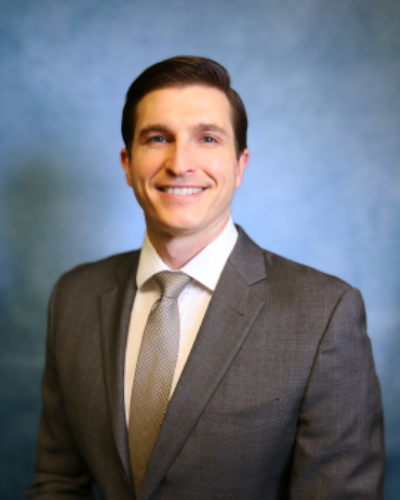
John Carney, MD
Residency - Northwestern
Medical School - USC
Undergrad - UCLA
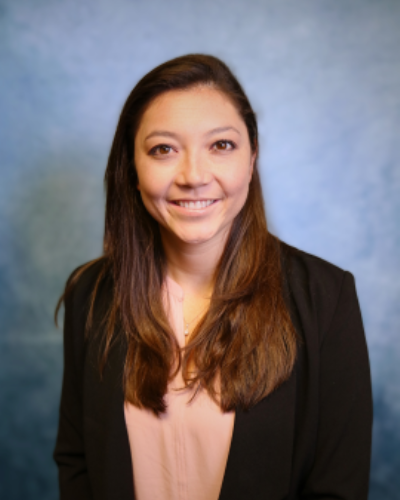
Stephanie Choo, MD
Residency - Univ. of Missouri
Medical School - Ohio State
Undergrad - Brown University
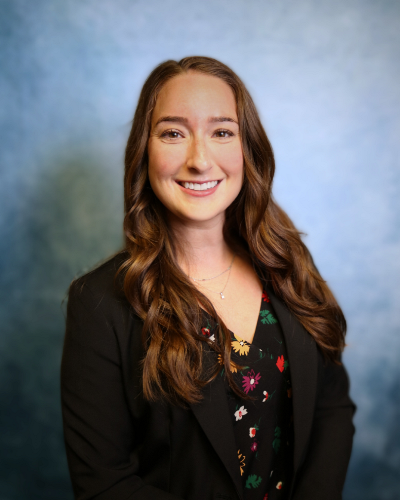
Julia Mastracci, MD
Residency - Atrium Health
Medical School - UVA
Undergrad - UVA
CLASS OF 2025
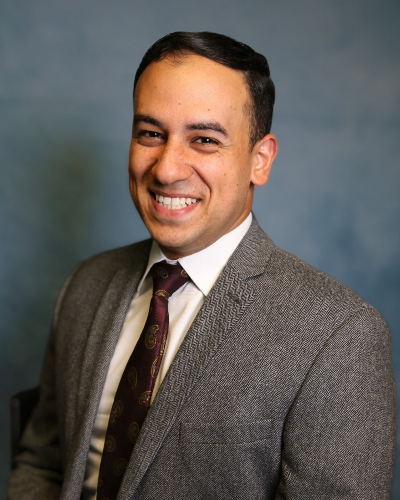
Andrew Abadeer, MD
Residency at Medstar Georgetown Univ.
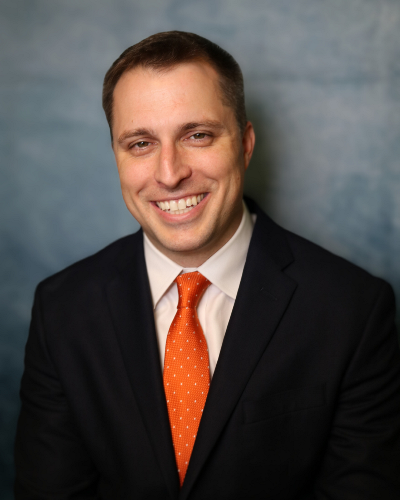
Tom Lynch, MD
Residency at Brooke Army Medical Ctr.
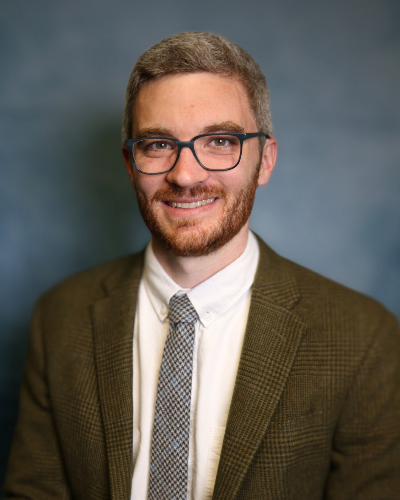
Joseph Scollan, MD
Residency at Cleveland Clinic
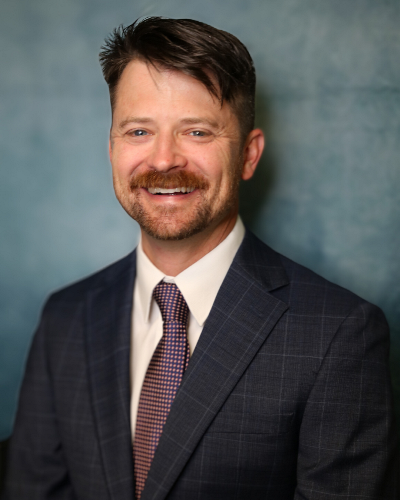
Luke Shiver, MD
Residency at Augusta University
CLASS OF 2024
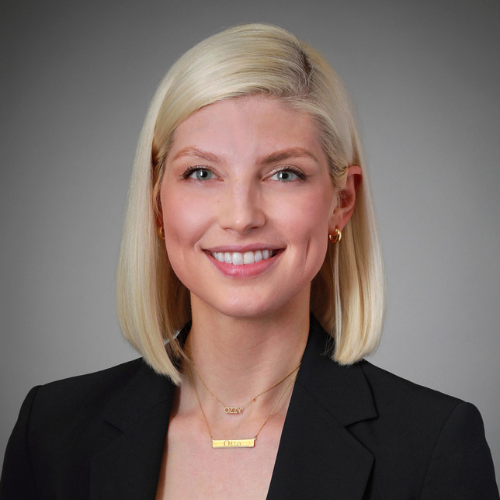
Margaret Luthringer, MD
Residency at Rutgers Plastic Surgery
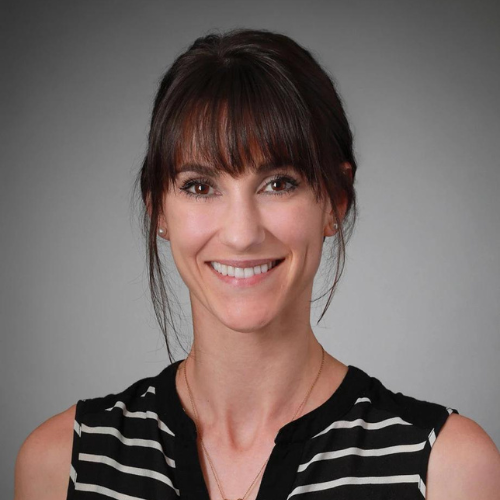
Dawn Rask, MD
Residency at Army Medical Center Ortho
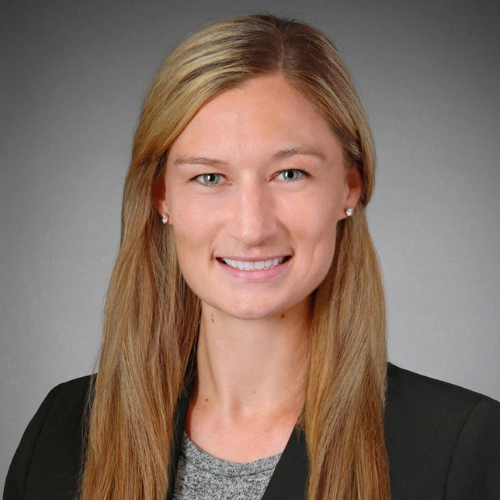
Courtney Carlson Strother, MD
Residency at Mayo Clinic Ortho
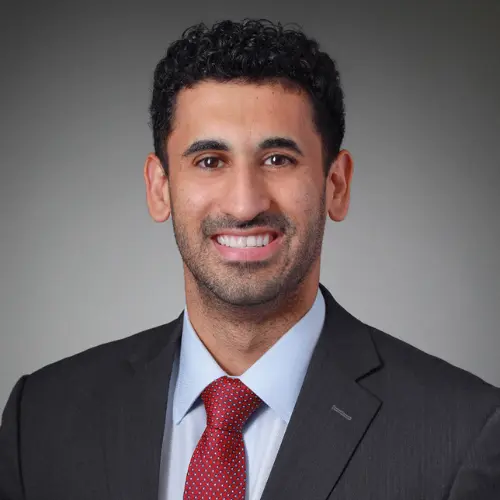
Greg Periera, MD
Residency at Duke Ortho
Clinical Faculty
OrthoCarolina Hand Center Physicians:
- Provide the best in both surgical and non-surgical evaluation and treatment and have become a center of excellence in the treatment of hand and upper extremity problems
- Have treated 50,000+ patients in the past year and performed over 8,000 surgeries
- Have been awarded 4 of the last 10 years with the Faculty Teaching Award in Orthopaedic Surgery at Atrium Health - Carolinas Medical Center and awarded 3 of the last 4 years Fellow Teaching Awards.
- Have been involved in resident education for 45+ years and are devoted to training orthopedic residents and fellows to be the very best in the hand and upper extremity service
- Speak at national and international scientific meetings including the ASSH regularly
- All actively participate in clinical trials with the OrthoCarolina Research Institute including ASSU and NIH-supported trials
- Faculty Research and Podium Presentations:
Hand and Upper Extremity Team:
- Michael Aversano, MD
- Chris Chadderdon, MD
- Lori Davis, Program Coordinator
- Erika Gantt, MD
- Ryan Garcia, MD
- Michael Gart, MD
- Glenn Gaston, MD, Fellowship Director
- Jordan Grier, MD
- Dan Lewis, MD
- Bryan Loeffler, MD
- Peter M. Waters, MD, MMSc
- Julie Woodside, MD
Program Introduction
One strength of this fellowship
is the large and diverse surgical volume. Annually the OrthoCarolina
Hand Center treats over 50,000 patients and performs over 8,000 surgeries:
- Subspecialty clinics in:
- Upper extremity tumors
- Arthroplasty shoulder to hand
- Arthroscopy shoulder to hand
- Level I trauma reconstruction (including replants, free tissue transfers and nerve transfers)
- Elite athlete hand and wrist injuries
We have separate congenital hand, brachial plexus, and reconstructive center for lost limbs (RCLL) clinics.
Fellows will actively participate in the daily management of patients in the OR and clinic environment. The fellows will be involved in near-peer education of the residents from Atrium Health - Carolinas Medical Center who will be doing their hand surgery rotations. Because of the large volume of attending physicians, both residents and fellows will have a one-on-one experience with a staff member each month; therefore, there is no competition between residents and fellows for elective cases. Residents and fellows will overlap in the Myers Park Clinic and on-call at Atrium Health - Carolinas Medical Center. Call averages 1 in 4 nights from home.
From a didactic standpoint, there are daily dedicated teaching sessions including cadaveric dissections, journal clubs, faculty lectures, one-on-one mentorship time, and microsurgical animal lab training.
One-half day per week is set aside for clinical and/or laboratory
research including combined projects with the attending and independent
research. The fellows are expected to complete one original research
project with the goal of publication in a peer-reviewed journal. The OrthoCarolina Research Institute,
a 501(c)(3) research organization with 16 full-time staff, provides
fellows with the knowledge, skills, and ability to successfully fulfill
the research requirements of their curriculum program.
This fellowship participates in the NRMP match program.
The Program is under the direction and supervision of the Director, Glenn Gaston, MD.
Program Details
The fellowship experience in flap reconstruction begins with a paid microsurgery course at the Mayo Clinic in the first 1-2 months of fellowship. Fellows will also attend the ASSH flap course which is followed by a hands-on cadaver flap course where they are exposed to and instructed on flap design, harvest, and execution. These educational opportunities provide the framework for success and are supplemented with multiple lectures on soft tissue reconstruction throughout the year.
In terms of clinical experience, Drs. Ryan Garcia and Michael Gart provide soft tissue and vascularized bone reconstructions for all OrthoCarolina subspecialties (foot/ankle, adult reconstruction, spine, peds, etc). Additionally, they will provide the soft tissue reconstruction needs for the orthopedic trauma team at our Level 1 trauma center. The demand for soft tissue reconstruction in the extremities is growing at an exponential rate. Fellows will understand and will be exposed to all principles of the reconstruction ladder including free tissue transfers, perforator flaps, and pedicled flaps of all designs. Fellows will have further experience in the use of intra-operative angiography for soft tissue perfusion and postoperative monitoring of flaps.
Microsurgical experience
The microsurgical experience begins with the aforementioned micro-course and is followed by a monthly micro lab which includes both synthetic vessel and live rat anastomoses. The groundwork in microsurgical skills is further augmented, at each fellow’s discretion, with full access to a high-end operating room microscope and microsurgical instruments that are housed in our office and available anytime. Fellows, therefore, have unlimited access to further advance their skills and comfort level. Heading up the microsurgical training for the fellows is Drs. Ryan Garcia and Michael Gart whom both completed residencies in plastic surgery along with post-residency fellowships in hand surgery.
In terms
of demonstrating microsurgical skills in the operating room, our group
takes hand call at our regional Level 1 trauma center (Atrium Health
- Carolinas Medical Center) which is not shared with plastic surgery.
The fellows take one day of call during the week and one weekend of call
per month. This allows not only for an excellent work-life balance but
also does not sacrifice learning opportunities. Given that the exposure
to replantation can be hit or miss, all fellows are notified of replant
cases and are allowed to participate at their discretion. On average,
our group performs 1 revascularization per week, 1 finger/thumb replant
per month, and 1 major limb replant per year. More than half of our
previous fellows perform replantation in their current practices.
Shoulder/elbow
The majority of the fellows’ complex shoulder experience is during their time with Dr. Loeffler who is an associate member of the American Shoulder and Elbow Surgeons after having completed a shoulder and elbow fellowship at Rothman Institute as well as a hand fellowship at the Philadelphia Hand Center. His practice spans the breadth of arthroscopic and open shoulder surgery including Level 1 trauma fracture management, rotator cuff pathology, as well as primary and revision shoulder arthroplasty. In addition, our fellows get training in nerve and tendon transfers to restore the paralytic shoulder throughout the year with the brachial plexus team with procedures such as radial to axillary nerve transfers, lower trapezius to infraspinatus transfers, pedicled latissimus for deltoid reconstruction, and glenohumeral fusion. Given the elective rotations that we offer and traveling fellowships, fellows have ample opportunities for exposure to complex shoulder reconstruction, and many of our previous fellows’ current practices include this.
Fellows
here are exposed to the full breadth of elbow pathology and surgical
management including advanced elbow arthroscopy, primary and revision
total elbow arthroplasty, elbow trauma including ligament
repair/reconstruction as well as complex fracture management as well as
tendon transfers and soft tissue coverage about the elbow. All of our
faculty performs elbow procedures and many tackle the most complex
procedures. The diverse range also includes procedures such as Steindler
flexorplasty, pedicled latissimus and free gracilis transfers for
restoration of elbow flexion, deltoid, and biceps transfers to restore
elbow extension, as well as contracture releases for cerebral palsy and
arthrogryposis.
Brachial Plexus
We are fortunate to have a very busy brachial plexus clinic staffed by Drs. Gaston, Loeffler, Lewis., and Waters This team treats both pediatric and adult brachial plexus injuries, along with complex peripheral nerve injuries, and patients with spinal cord injuries. This vast clinical and surgical experience provides exposure to every reconstructive procedure including nerve grafting, peripheral nerve transfers, intercostal transfers, free tissue transfers, pedicled muscle transfers, and shoulder tendon transfers. The brachial plexus clinic experience also includes the opportunity to observe electromyography performed in the clinic with expert electromyography and a monthly journal club.
Congenital Hand
Fellows at
OrthoCarolina are fortunate to get broad exposure to congenital hands
through one of the only private practice congenital hand clinics in the
country. Our congenital hand and upper extremity clinic is held in our
office monthly, and we have three faculty (Drs. Aversano, Chadderdon, Woodside,
and Waters) with a special interest in congenital hand patients who
staff this clinic. This allows for a team approach that facilitates
collaboration and brainstorming amongst surgeons and also allows for
monthly concentrated exposure to these unique cases for our fellows.
Fellows, residents, and medical students attend this highly educational
clinic and each individually assesses patients before all patients are
evaluated and discussed by the group as a whole.
This
clinic sees and treats the full spectrum of congenital upper limb
disorders including radial longitudinal deficiency, cleft hand, complex
syndactyly, amniotic band syndrome, and thumb hypoplasia. Surgical cases
are also performed with a team approach for all bilateral or complex
cases and the fellows are heavily involved in the vast majority of these
cases. To augment the fellows' exposure to this subject matter, the
staff presents a monthly congenital hand lecture (as part of our morning
didactic lecture series) as well as a monthly congenital hand journal
club.
Spacisity Experience
Led by Dr. Lewis and Dr. Geary, our multidisciplinary team of healthcare professionals, including neurologists, physiatrists, physical therapists, occupational therapists, and speech therapists, collaborate to provide comprehensive care for patients like you with spasticity-related conditions such as stroke, brain injury, or Cerebral Palsy.
On Call Experience
During the on-call experience, fellows are scheduled to take hand-call approximately one night out of every four. We strictly adhere to the normal ACGME requirements. When there are emergency room or inpatient consultations at Atrium Health - Carolinas Medical Center, the junior residents initially consult the senior residents, who then involve the fellow as needed. Subsequently, the fellow engages the attending surgeon. Conversely, for ER and inpatient consults at Presbyterian and Mercy, the fellow evaluates the patient independently and then discusses the case with the on-call hand attending. Although participation in general orthopedic trauma call is offered, it is not mandatory, with the aim of allowing fellows to maintain skills developed during residency.
There are
many special aspects of this program but three stand out as truly
unique: 1. A well-organized, strong daily didactic exposure 2. A
customizable program for each fellow to tailor the year to their needs
through the four-month elective rotation and traveling fellowship 3. An
enjoyable work-life balance with fun outside of work with staff.
traveling fellowship
The essence of our fellowship is to create an experience that maximizes
education while minimizing non-educational burdens. This is reflected
throughout the design of the fellowship from the intense didactic
curriculum, to the call schedule, to the four months of elective time, and perhaps most exemplified in the traveling fellowship. Each fellow is
provided one week paid for a traveling fellowship anywhere in the world
to focus on a particular area of interest. This unique
opportunity has included trips to England (with Dr. Dom Powers), Spain (with Dr. Garcia-Elias and Dr. Del Pinal), Paris
(with Dr. Oberlin), Brazil (with Dr. Bertelli), Canada (with Dr. King),
St Louis (with Dr. Mackinnon), the UK (with Dr. Hayton), and Coimbatore,
India (with Dr. Sabapathy).
Goals & Objectives
The educational goal of the hand and upper extremity fellowship at OrthoCarolina is to prepare the fellow with the fundamental skill set to become an upper extremity expert in a private or academic setting upon completion from the program.
The program affords a wide variety of exposure and instruction in all aspects of hand and upper extremity surgery. We have an extensive didactic lecture schedule including numerous clinical conferences. In the office, the fellows will gain insight into the evaluation, diagnosis, and clinical workup of patients presenting with the full spectrum of upper extremity disorders. With nine practicing hand surgeons involved in fellowship education, our group offers a very vast array of surgical and nonsurgical pathology. Annually the OrthoCarolina Hand Center treats over 50,000 patients and performs over 7,900 surgeries. We have a very diverse practice ranging from brachial plexus reconstruction to fingertip reconstruction. We take call at a level 1 trauma center and have extensive experience in the management of complex wounds.
Listed below are the educational objectives and required competencies as defined and outlined by the ACGME specific to the Hand Fellowship Curriculum. The sheer volume and very nature of our large hand practice will ensure these goals are met.
CLINICAL EXPERIENCE
- OrthoCarolina Hand Center
- Fellows will gain experience in history taking, physical examination of the upper extremity, injections, interpretation of radiographic studies, casting and other office-based procedures. Additionally, congenital hand clinic is held monthly in the office. Many didactic sessions from the lecture schedule are held here.
- Specialty Clinics
- All fellows will also attend the OrthoCarolina Congenital Hand Clinic which is held ½ day per month. There are 3 faculty devoted to this clinic that will be present at all times. Fellows will perform the initial evaluation, order necessary x-rays, and synthesize a treatment plan to present to the faculty. The team of attendings and fellows will jointly formulate a plan of care.
- Also, we have a dedicated brachial plexus clinic which is held 1 day per month with 2 full OR days per month. This will be run in the same fashion as the congenital hand clinic in terms of fellow responsibility.
- Monthly Reconstructive Center for Lost Limbs Clinic: Fellows evaluate and treat upper extremity amputees ranging from partial hand amputation to shoulder-level amputees. Appropriate prosthetic fit and training as well as cutting edge surgery are discussed and performed.
- Myers Park Clinic
- Myers Park is the second outpatient clinic, which is run by the fellows, where the fellows are able to make independent assessment and treatment decisions without an attending staff surgeon physically present. Fellows discuss cases encountered in this clinic with the attending surgeons and plan surgery accordingly. While independence is encouraged, attending surgeon availability for cases must occur 100% of the time. The residents on the hand service are also directly involved in the operation of the Myers Park Clinic. In this setting, the fellow serves as a faculty mentor for the residents and is expected to enhance the educational experience of all residents involved.
SURGICAL EXPERIENCE
- Atrium Health - Carolinas Medical Center
- Fellows will gain experience in Level I trauma reconstruction, advanced microsurgical skills including replants, nerve and artery repairs, and free tissue transfers, arthroplasty of the shoulder, elbow, wrist, and hand, congenital hand differences, resident education and Myers Park Clinic.
- Atrium Health - Mercy
- Fellows will gain experience in inpatient and outpatient surgical skills including arthroscopy, fractures and nerve and tendon repair. Atrium Health - Mercy houses an anatomy lab and arthroscopic simulator that are used by the fellows.
- Novant Health
- Fellows will gain experience in inpatient and outpatient surgical skills including arthroscopy, fractures, and nerve and tendon repair
- Charlotte Surgery Center, Mallard Creek Surgery Center, and Matthews Surgery Center
- Exclusively outpatient ambulatory surgery centers. The majority of cases are carpal tunnel, trigger finger, Atrium Health - Carolinas Medical Center arthroplasty and other short duration common surgical hand procedures. Additionally, fellows will learn the pros and cons of the business side of hand surgery in terms of ownership
- Case Diversity
- Open surgery – trauma, reconstruction, nerve compression, arthritis, infections
- Arthroscopy of the shoulder, elbow, wrist, and hand
- Implants for the treatment of arthritis
- Brachial plexus, nerve transfers, stroke, CP, SCI
- Micro - flaps / replants
- Congenital hand surgery
- Trauma
- While this is not a strictly microsurgical fellowship, we believe that basic competence in microsurgical vessel anastomosis and a full array of free tissue transfer should be within the armamentarium of the graduating hand fellow.
education and research
- Didactic curriculum: All hand faculty presently dedicate 1 hr every morning to teaching. We have weekly grand rounds and M&M on Mondays. Wednesday morning conference includes faculty lectures on a variety of topics. Other sessions include hand journal club, research meetings, preoperative indications conference, and microsurgical skills taught at Atrium Health - Carolinas Medical Center utilizing animal models. There is an arthroscopic simulator that Fellows can use as well as access to cadaver lab to be used for anatomy teaching on a monthly basis. We have a separate Orthopaedic Research Institute (501C3) with dedicated training for Fellows in research.
- Meetings:
- Mayo Clinic Microsurgery Course
- ASSH Fellows Flap Course / ASSH Annual Meeting
- One-week traveling fellowship
- Industry courses available by request
RESEARCH
Research is a priority of the fellowship. Fellows will devote at least one-half day each week primarily to clinical and laboratory research, including combined projects with the hand faculty and independent research. The fellow is expected to complete one original research project with the goal of publication in a peer-reviewed journal.
The fellows are supported in large part by the OrthoCarolina Research
Institute, a 501(c)(3) research organization with 16 full-time staff.
The staff is available to assist the fellows in understanding the
research process, regulatory and compliance issues, and the complexities
of managing and completing a scientific study. We also have a
full-time dedicated hand research coordinator.
Fellow Involvement
The fellowship is designed as a mentorship model. Fellows will work one-on-one with each staff member over the first 8 months, then they will have 4 months of elective time. This will include office and surgery. Residents and fellows will work together in the weekly half-day Myers Park Clinic as well as on call. Fellows will have graduated with responsibility and independence in the OR and on call as they gain experience throughout the year.
Fellows/residents interact one-on-one with staff at all times in the office, OR and on call.
In the Myers Park Clinic setting the fellow serves as a faculty mentor for the residents and is expected to enhance the educational experience of all residents involved.
For emergency room or inpatient consultations at Atrium Health - Carolinas Medical Center, the junior residents consult the senior resident, who then involves the fellow as appropriate.
How This Fellowship is Unique
- We boast a dedicated faculty of 10 full-time educators committed to delivering top-notch education.
- Our clinical practices cover a broad spectrum, including:
- Comprehensive upper extremity surgery encompassing arthroscopy and arthroplasty.
- Specialized areas such as congenital hand, brachial plexus/tetraplegia, and reconstructive clinics for lost limbs.
- Extensive microsurgical experience including replantation.
- Care for elite athletes and managing high volume/high complexity upper extremity trauma.
- A structured daily conference schedule enhances learning and collaboration.
- Monthly microsurgical training sessions on animal models at Carolinas Medical Center provide hands-on experience.
- Fellows benefit from support from the OrthoCarolina Research Institute, facilitated by 16 full-time staff members.
- A dedicated hand research coordinator aids fellows in navigating research processes and compliance issues.
- Charlotte offers a vibrant mix of activities, from high-energy racing and professional sports to cultural experiences
- Annual research days at the Greenbrier, in collaboration with prestigious institutions, provide valuable networking opportunities and mock oral board preparation.
- Program perks include:
- Traveling fellowship opportunities.
- Elective months for personalized learning.
- Monthly one-on-one "power" sessions with Drs. Gaston and Lewis on Saturdays.
- Individual mentorship in clinic settings.
- Active alumni group chat on WhatsApp for ongoing networking.
- High-volume minor procedure room performing WALANT techniques
- Group attendance at microsurgical courses, ASSH meetings, and research conferences.
Facilities
ORTHOCAROLINA HAND CENTER:
- Fellows will gain experience in history taking, physical examination of the upper extremity, injections, interpretation of radiographic studies, casting and other office-based procedures. Additionally, the congenital hand clinic, brachial plexus clinic, and amputee clinic are held monthly in the office. Many didactic sessions from the lecture schedule are held here. Office-based surgery takes place in the minor procedures room, housing a training microscope. Nearly 1,000 cases per year are seen in the office.
ATRIUM HEALTH - CAROLINAS MEDICAL CENTER:
- Fellows will gain experience in Level I trauma reconstruction, advanced microsurgical skills including replants, nerve and artery repairs, free tissue transfers, arthroplasty of the elbow, wrist, and hand, congenital hand deformities, resident education, and Myers Park Clinic.
ATRIUM HEALTH – MERCY:
- Fellows will gain experience in inpatient and outpatient surgical skills including arthroscopy, fractures, and nerve and tendon repair. Atrium Health - Mercy houses an anatomy lab and arthroscopic simulator that are used by the fellows.
NOVANT HOSPITAL:
- Fellows will gain experience in inpatient and outpatient surgical skills including arthroscopy, fractures, and nerve and tendon repair.
CHARLOTTE SURGERY CENTER, MALLARD CREEK SURGERY CENTER, MATTHEWS SURGERY CENTER:
- Exclusively an outpatient ambulatory surgery center. The majority of cases are carpal tunnel, trigger finger, Atrium Health - Carolinas Medical Center arthroplasty, and other short-duration common surgical hand procedures. Additionally, fellows will learn the pros and cons of the business side of hand surgery in terms of ownership.
Laboratory and Research Facilities
- Cadaver bioskills lab
- Microsurgical lab on the Atrium Health - Carolinas Medical Center Campus
- Dedicated fellows study area with work space and computer access
- A videotape library (at Atrium Health - Carolinas Medical Center) which includes educational DVDs on anatomical dissections and surgical procedures for instructional use by OrthoCarolina’s fellows
- Computer-aided instruction: OrthoCarolina’s IT Department, as well as the OrthoCarolina Research Institute, is available to provide assistance with computer graphics, PowerPoint presentations, scanning, digital photography. Other video editing and video productions are available to Fellows at Carolinas HealthCare System’s audio/video department
- Access to (a) a major medical library, (b) electronic retrieval of information and medical databases:
(a) The Fellow has full access to the Carolinas HealthCare System Medical Library. Located on the campus of Atrium Health - Carolinas Medical Center the AHEC Library & Information Resource Center offers a comprehensive array of both print and online resources to satisfy the informational and educational needs of all healthcare providers in the Charlotte region
(b) The AHEC Digital Library is available for all North Carolina health care professionals. It includes hundreds of full-text journals and textbooks; electronic databases such as MEDLINE, CINAHL and Cochrane; comprehensive health information sites such as MDConsult; and other medical information links
Compensation
Annual Salary: $ 70,000
Excellent Benefits:
- Health & Dental Insurance for Fellow and dependents
- Short & Long Term Disability
- Basic Life Insurance, equivalent to 2x annual salary
- Retirement Plan, eligible first of the quarter, following ninety (90) days of service
- Flexible Spending Accounts
- Up to three weeks of PTO; which includes sick time and vacation days
Provide coverage under OrthoCarolina’s professional liability plan, with tail coverage provided at the end of the fellowship.
- Two paid courses per year including the ASSH Annual Meeting and Microsurgical training course at the onset of the fellowship year.
- One week traveling fellowship - all expenses paid.
- Mayo micro course
- ASSH
- Traveling fellowship
Teaching File
Welcome to the OrthoCarolina Hand Teaching File. Our faculty and fellows have assembled years of images and created this teaching file for educational purposes. A very special thanks goes to Dr Mark Tait who spent countless hours making this idea a reality. Feel free to use any of these images for educational purposes including lectures and manuscripts. We simply ask that you give credit as "with permission, OrthoCarolina Hand Teaching File".
AMPUTATIONS
ANATOMY
ARTHRITIS
ARTHRODESIS
ARTHROPLASTY
ARTHROSCOPY
BICEPS AND TRICEPS DISTAL INJURY
BRACHIAL PLEXUS
BURNS AND FROSTBITE
CEREBRAL PALSY
COMPARTMENT SYNDROME
CONGENITAL ADULT
CONGENITAL PEDIATRICS
CRPS
DISLOCATION AND INSTABILITY
DUPUYTREN'S
ELBOW & FOREARM CONTRACTURE
ELBOW RECONSTRUCTION
EXTENSOR TENDONS
FINGERTIP INJURIES
FLAPS AND GRAFTS
FLEXOR TENDONS
FOREIGN BODIES
FRACTURES
INFECTIONS
INJECTION & EXTRAVASATION INJURIES
INTRINSIC CONTRACTURES
KIENBOCK'S AVN
MANGLING & BIZARRE
MICROVASCULAR
NAIL ABNORMALITIES
NERVE (REPAIR, TRANSFER, COMPRESSION, GRAFTING, NEUROPATHY, PALSY, NEURITIZATION)
SYSTEMIC & GENETIC DISORDERS
TENDON TRANSFERS
TENDONOSIS, TENDONITIS AND EPICONDYLITIS
TETRAPLEGIA (QUADRIPLEGIA, SPINAL CORD INJURY, PARALYSIS)
THUMB RECONSTRUCTION
TRIGGER FINGER (STENOSING TENOSYNOVITIS)
TUMORS (UPPER EXTREMITY, HAND)
ULNAR-SIDED WRIST DISORDERS (ULNAR WRIST PAIN)
VASCULAR DISORDERSf
About Charlotte, NC
Charlotte has it all, from a thriving arts and cultural scene to an equally energetic sporting calendar, meaning that residing in the “Queen City” allows a multitude of activities to fulfill the fellow’s time outside of work. A prosperous city that is home to numerous profitable companies, Charlotte and its residents haven’t lost their old Southern charm or forgotten how to make traditional Southern cuisine.
Whether it's attending a professional sporting event (Carolina Panthers, Charlotte Hornets, or minor league baseball and hockey) or a fun-filled activity for the kids, there's no shortage of things to do in the Queen City. Several museums, old and new, give Charlotte an edge in the world of art and culture. The Mint Museum of Art showcases American and European fine art, furniture, silver and ceramics collections, while the family-friendly Discovery Place delights visitors with interactive exhibits and IMAX theater. And of course, you can't talk about Charlotte without talking about racing – stockcar racing, that is. Unique to the area are the nostalgic North Carolina Racing Hall of Fame and the exhilarating Richard Petty Driving Experience, where visitors embark on their own racecar adventures.
Some Popular Charlotte Attractions:
Applying to Our Program
To apply to our fellowship program you must register with the National Residency Matching In order to qualify, all candidates must have completed orthopedic, plastic, or general surgery residency training in a U.S.-accredited program.
Applicants must apply through the American Society for Surgery of the Hand by completing an online application and providing other required documents.
Required documents:
- Brief personal statement
- Curriculum vitae
- Copy of USMLE/COMLEX transcript (all three steps; passed within three attempts)
- Three letters of recommendation. One of which should be from the chairman or program training director of your training program. Letters must be on official letterhead and may not be older than six months
- Copy of medical school transcript
Deadline: Application deadline: November 15, 2024
Interviews: Interviews will be conducted on January 25, 2025, and February 8, 2025. Applicants selected to interview will be contacted well in advance.
This fellowship participates in the NRMP match program.
Please contact Lori Davis via e-mail at Lori.adavis@orthocarolina.com with any further questions. (704-323-3522).
